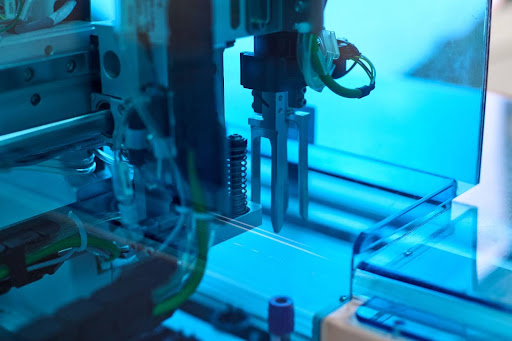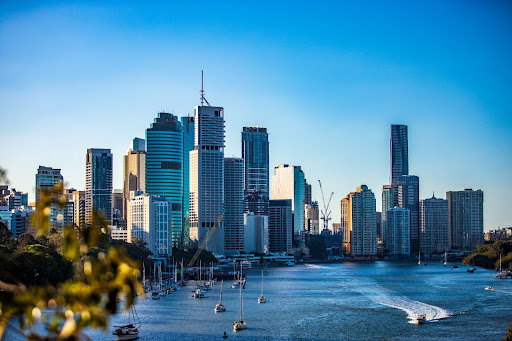
The future trends of plastic injection moulding in Brisbane
Blog
The future trends of plastic injection moulding in Brisbane
Authored By: SDI Plastics
Plastic injection moulding is an essential manufacturing process used to produce plastic parts and components across many industries such as automotive, medical, electronics, and consumer goods. It works by injecting molten plastic material into a mould cavity, where it sets into the final shape. The factors driving its widespread adoption are cost efficiency, design flexibility, production consistency, material versatility, and the ability to integrate multiple assemblies into a single part.
As a vital technology for enabling mass production and product innovation across sectors, major developments in Plastic Injection Moulding have significant implications globally. In Australia’s vibrant manufacturing hub, the local plastic injection moulding landscape is set for an exciting future in the coming years.
Driven by factors like sustainability demands, advanced materials, Industry 5.0, customisation needs, and more, Australia’s moulding ecosystem is gearing up to embrace sweeping changes. By leveraging cutting-edge technologies and global best practices tailored to local capabilities, the future presents an opportunity to uplift competitiveness and bolster the city’s manufacturing leadership.
The importance of plastic injection moulding
Plastic injection moulding facilitates high-volume production of intricate plastic components with consistency, efficiency, and cost-effectiveness difficult to achieve with alternative material. It streamlines the manufacturing of components with complex geometries or detailed features, all while minimising material waste.
This unique value proposition has seen Plastic Injection Moulding become deeply entrenched across every industry dealing with consumer products, vehicles, electronics, pharmaceuticals and more. In Australia alone, the market size is forecast to grow at a 4.1% CAGR, exceeding AU$1.64 billion by 2027. Globally, an estimated 33% of all plastic manufacturing specialises in plastic injection moulding.

From intricate precision gears to simple yoghurt cup lids, injection-moulded components permeate our everyday lives. For Brisbane’s manufacturing ecosystem the advancements of plastic injection moulding involves being ‘production ready’ and the ability to adapt and embrace new opportunities.
The current landscape – where does Australia’s plastic injection moulding industry stand?
Australia’s plastic injection moulding capabilities cater well to domestic demands across a range of industries. Pockets of development exist in Victoria, New South Wales, and South-east Queensland, hosting firms with technical expertise in commodity polymers and niche engineering materials. Among Australia’s plastic product manufacturing hotspots, Brisbane accounts for over 22% of leading brands in packaging, construction supplies, and recycling.
Local moulders benefit from proximity to raw materials through the region’s strong chemicals sector as well as metalworking partners. However, issues around ageing assets, the inability to achieve economies of scale, growing inflation, high labour costs and high energy costs affect overall competitiveness. Reliance on exports also leads to overseas demand vulnerabilities.
Nonetheless, Brisbane retains depth across standard capabilities and touts strong potential for emerging niche applications. Development schemes facilitating technology upgrades and moving into the development of Industry 4.0/5.0, can contribute and uplift productivity among small and medium sized businesses. Meanwhile, strategic collaborations with research institutions and global technology leaders can position local firms on the cusp of advanced manufacturing.
Key drivers of reshaping plastic injection moulding’s future
In Australia, we see the local translation of these trends manifesting as follows:
1. Sustainability – deploying eco-friendly materials and practices
With the rising ecological impact of plastic waste, eco-friendly materials are gaining prominence globally. Biopolymers like PLA and PHA made from plant starches will grow at a 17%+ CAGR through 2025. Similarly, recycled resin consumption will hit 6.6 million metric tonnes by 2025. Sustainability demands from Australian consumer sectors are accelerating similar material adoption locally.
Brisbane’s leading packaging and building supply firms are already offering green product ranges integrating recycled resins and biomaterials. Plastics recyclers are also stepping up efforts targeting post-consumer and post-industrial waste. Additionally, efficiency-enhancing IoT systems help optimise energy, water, and material usage while minimising cycle time waste.
Mandates around sustainability reporting and carbon footprint analysis also encourage greener production practices. With major end-users like food and beverage and automotive prioritising eco-compliance in their supply chains, sustainable credentials supported by data will enable market growth locally.
2. Advanced materials – unlocking new performance potential
High-performance polymers, composites, nanomaterials, and smart polymers constitute a new breed of plastics imparting superior mechanical, conductive, and aesthetic properties. Global advanced plastic material demand will grow over 6% annually, reaching around US$138 billion by 2026.
Locally in Brisbane, adoption among injection moulders serves increasing requirements from the aerospace, defence, electronics, and medical sectors. Thermosets and high-temperature thermoplastics can facilitate precision components replacing metals with weight and corrosion resistance. Meanwhile, high-conductivity plastics allow moulding of EMI shielding, heating elements, and so forth.
Reinforced polymers also provide a cost advantage over metal replacement, for example in auto parts and aircraft interiors, allowing localised manufacture. For Brisbane firms, focusing capability-building around such advanced materials facilitates accessing new high-margin markets.
3. Smart digital technologies – enhancing productivity and agility
Digitalisation elements encompassing automation, industrial internet of things (IIoT), and artificial intelligence are driving smart plastic injection moulding worldwide. Over 50% of plastic manufacturing firms are expected to incorporate smart factory principles by 2025. This Industry 4.0/5.0 integration minimises overall equipment effectiveness (OEE) losses through real-time monitoring, predictive analytics, and adaptive control.
Reduced cycle times, lower defect rates, and optimised material usage significantly improve cost and quality competitiveness. For small Brisbane injection moulders facing rising wages and unreliable overseas exports, digitisation adoption with government support can be a saviour for improving local sustainability.
Agility also improves with rapid tooling methods like 3D printing, enabling faster design changes and new product introductions. Cloud data platforms further facilitate collaboration across the concept-to-production loop for consumer-centric product development.
4. Evolving market demands pulling new requirements
Globally, Plastic Injection Moulding output volume across transport, packaging, and medical sectors will rise consistently over the next 5 years. Moreover, general economic shifts are shifting priorities from scale efficiency to flexibility, time-to-market, and value additions like customisation.
Brisbane injection moulders can capitalise on the influx of new local customers from sectors like electronics and recreational products. Scientific moulding methods can optimise productivity for fluctuating volumes, and sustainable materials can enhance compliance.
Most importantly, reconfigurable tooling technologies now facilitate cost-effective production of smaller batches. This allows capturing complex prototyping contracts earlier catered offshore as well as medium-run overseas exports. The demand landscape ahead will spur new modes of customer-centric, agile production.
5. Supply chain regionalisation – circularity and risk mitigation
Pandemic disruptions highlighted the vulnerabilities of concentrated offshore supply chains. Reshoring bulk raw materials like resin polymers and additives closer to production units offers stability.
For injection moulding firms, reshoring has been a popular choice for businesses to move their production back to Australian shores. This ensures a more secure supply chain with minimal disruption to the end consumer. Localisation also reduces the carbon footprint of transport while allowing plastic waste recycling integration.
Technology priorities driving plastic injection moulding advancements
With global growth opportunities ahead, plastic injection moulding futurists require consolidating smart technologies and solutions to uplift capabilities in the following areas:
1. Production optimisation integrated sensors
The industrial internet of things, and big data analytics will minimise overall equipment effectiveness losses from inconsistent quality, machine downtimes, and process variability. This projection of near-zero defect rates and 180%+ asset utilisation uplifts productivity exponentially.
2. Automation and machine flexibility
Collaborative robots or Cobots with adaptive learning algorithms make lights-out autonomous production, for ‘pick and place’, and ‘pick and pack’ possible. Meanwhile, modular machining systems with quick changeover features allow configuration for different material types, shot volumes, etc., supporting demand volatility.
Overall, a 30%+ reduction in direct labour and 50% lowered changeover costs are achievable.
3. Rapid tooling capabilities
Carbon fibre 3D printing, stereolithography, and laser sintering can enable the next-day fabrication of injection mould tooling like patterns and prototypes and create single-use volumes cost-effectively. This facilitates urgent small batches as well as design and material trial iterations.
4. Sustainability tracking and compliance
IoT feedback loops providing granular data on energy, emissions, and material waste flows tied to analytics dashboards afford real-time environmental impact monitoring. This drives continuous efficiency gains while certifying compliance credentials sought after by eco-conscious customers.
The road ahead & the future
Global manufacturing is undergoing a metamorphosis led by connectivity, intelligence, and sustainability. For Brisbane’s injection moulders, change beckons across customer demand patterns, production methods, and quality criteria.
By embracing advanced technologies like Industry 5.0, carbon-fibre 3D printing, robotics automation and integrating up-skilled talent, firms can upgrade capabilities around emerging niches, from EV components to defence products.
Instead of competing on costs, focus must shift to expertise and value addition. Sustainable material competencies aligned to market requirements also offer differentiation. Proactiveness rather than reluctance to transform business models will define the future.
With apt private and public investments in collaborative R&D, smart infrastructure, and local supply chain development, Brisbane is a strong contender, morphing into Asia-Pacific’s additive and sustainable plastic injection moulding hub
Conclusion
Plastic injection moulding is an integral production process across many industries. Developments in its capabilities and materials have far-reaching impacts. As Australia’s manufacturing stronghold, Brisbane boasts expertise across standard polymer applications nevertheless, it does face pressures affecting competitiveness.
However, sweeping global changes led by sustainability demands, advanced materials, digitalisation, customisation needs, and supply chain shifts promise to reshape the local landscape. By embracing technologies like Industry 4.0/5.0, industrial IoT, carbon fibre 3D printing, and integrating recycled plastics, Brisbane’s moulders like SDI Plastics can enhance productivity, agility, and environmental compliance.
Supporting investments in R&D collaborations, future-ready talent, and localising material circularity will be key for the industry’s success. SDI Plastics is well-positioned to lead this transformation with its commitment to adopting the latest technology and sustainable practices.
The goal should be transforming the city into Asia-Pacific’s hub for specialised, eco-friendly plastic injection moulding excellence. Instead of cost focus, local players must orient around emerging e-mobility, defence, aerospace, and medical niches where high-performance materials and rapid solutions command a premium.
The future looks bright for the industry in Brisbane. If you are looking for a forward thinking plastic injection moulding supplier, SDI Plastics proactively embrace change, and adapt to progressive manufacturing that is aligned with customer needs. For a confidential discussion, please contact our talented team on (07) 3807 8666.
Book your free consultation
Give us a call to book your free consultation and learn how much value can be added to your business with SDI Plastics by your side.